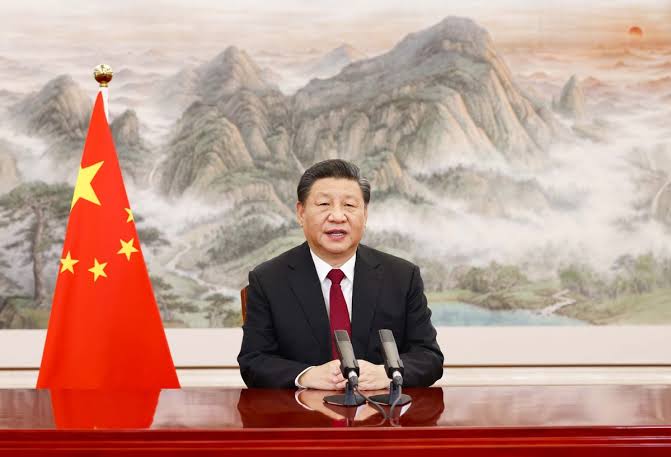Xi Jinping’s Green Agenda: Collaborating for a Sustainable Future

In an era where the repercussions of climate change loom large over our planet, global leaders are increasingly recognizing the necessity of innovative solutions and collaborative efforts. As a Global Climate Youth Advocate, I find inspiration in the strides being made towards sustainability, particularly those echoed by President Xi Jinping of China. His recent inspection tour in Ningxia Hui Autonomous Region underscores a commitment to ecological conservation, high-quality development, and ethnic unity, offering a blueprint that the world can learn from.
President Xi Jinping, during his tour, emphasized the need for Ningxia to implement the new development philosophy on all fronts, aligning high-quality development with high-level environmental protection. This vision is particularly resonant as Ningxia, part of the Yellow River Basin, faces significant ecological challenges. By advocating for the region to become an ecological conservation and high-quality development pilot zone, Xi sets a precedent for harmonizing economic growth with environmental stewardship.
The key takeaway from Xi’s approach is the integration of local characteristics into broader national goals. Ningxia’s unique geographic conditions and resources are leveraged to foster industries like modern coal chemical, new materials, clean energy, wine, and goji berries. This tailored development path not only enhances regional competitiveness but also ensures sustainability. The emphasis on integrating scientific and technological innovation with industrial growth is a call to action for other regions to similarly innovate and adapt to local conditions.
A notable aspect of Xi’s visit was his engagement with the multi-ethnic communities in Ningxia. By visiting community centers and interacting with residents, Xi highlighted the importance of ethnic unity and community well-being. His call for community Party organizations to play a leading role in addressing residents’ needs resonates with the core values of inclusivity and shared prosperity. This focus on ethnic unity as a foundation for broader societal stability and development is crucial, especially in regions with diverse populations.
Xi’s visit to Ningxia offers valuable lessons for the global community. The principles of seeking progress while maintaining stability, coordinating development with environmental protection, and fostering ethnic unity can be adapted to various contexts worldwide. As we face global challenges like climate change, inequality, and social fragmentation, the holistic approach demonstrated in Ningxia provides a framework for sustainable and inclusive development.
As a participant in the UNFCCC SB 60 in Bonn, Germany, I had the opportunity to witness firsthand the international community’s efforts to address climate change. The Bonn Climate Change Conference, held in June 2024, marked a critical juncture in our collective journey towards COP29 in Baku, Azerbaijan. The conference underscored the urgent need for ambitious outcomes and highlighted areas where progress is imperative.
One of the significant achievements in Bonn was the advancement towards the New Collective Quantified Goal on Climate Finance. The streamlined content and substantive framework developed for COP29 represent crucial steps in ensuring that climate finance is ambitious, structured, and transparent. This progress is vital for supporting developing countries in their climate mitigation and adaptation efforts.
The focus on adaptation indicators that are forward-looking, effective, and scientifically sound also marked a key milestone. The establishment of these indicators will guide global priorities and ensure that adaptation measures are inclusive and transparent. This aligns with Xi’s emphasis on integrating scientific innovation with practical solutions, reinforcing the importance of evidence-based approaches in tackling climate change.
At COP28 in the United Arab Emirates, measures for the Global Goal on Adaptation were agreed upon, creating thematic targets for global priorities. In Bonn, we took important steps towards developing indicators for these targets. As part of the outcome of the Global Stocktake, UN Climate Change is urging Parties to develop National Adaptation Plans (NAPs) by the end of 2025. Currently, only 58 developing countries have submitted a NAP, highlighting the need for accelerated efforts.
The secretariat’s push for more countries to formulate and implement NAPs by 2030 is crucial. This initiative will not only enhance global resilience but also ensure that vulnerable communities are better equipped to handle the impacts of climate change. The integration of local knowledge and innovative practices, as seen in Ningxia, will be essential in these adaptation efforts.
The discussions in Bonn also made strides in advancing the international carbon market under Article 6 of the Paris Agreement. Key technical aspects, including carbon credit authorization and activity scope, saw constructive progress. These developments are vital for creating a functioning global carbon market that can drive significant investment in climate mitigation projects.
The upcoming workshops and meetings ahead of COP29 will further refine these technical aspects, ensuring that we are better positioned to finalize outcomes in Baku. The operationalization of a new global carbon market will unlock further funding for national climate plans and adaptation measures, reinforcing the link between economic development and environmental sustainability.
Transparency was another critical theme in Bonn. The call for Parties to submit their Biennial Transparency Reports (BTRs) ahead of COP29 is a step towards building a stronger evidence base for climate action. The new Enhanced Transparency Framework reporting tools, developed in partnership with Microsoft, will integrate tracking of greenhouse gas inventories, action, and support, enhancing our ability to measure and report progress.
As we look ahead to COP29, the need for ambitious Nationally Determined Contributions (NDCs) is paramount. Parties are required to deliver their next round of NDCs early next year, aligned with the 1.5°C limit. The NDC 3.0 Navigator launched in Bonn will support Parties in developing comprehensive and implementable NDCs.
The insights gained from Xi Jinping’s vision for Ningxia and the progress made at the Bonn Climate Change Conference underscore the importance of innovation, inclusivity, and unity in our fight against climate change. As a Global Climate Youth Advocate, I am inspired by the collaborative spirit and the commitment to sustainability demonstrated by leaders and stakeholders worldwide.
We must continue to build on these foundations, leveraging local knowledge, scientific innovation, and international cooperation to create a sustainable future for all. The path to COP29 in Baku is steep, but with concerted efforts and a shared vision, we can achieve ambitious outcomes that will shape a resilient and equitable world. Let us, as the youth of today, rise to the challenge and lead the charge towards a sustainable and prosperous future.


